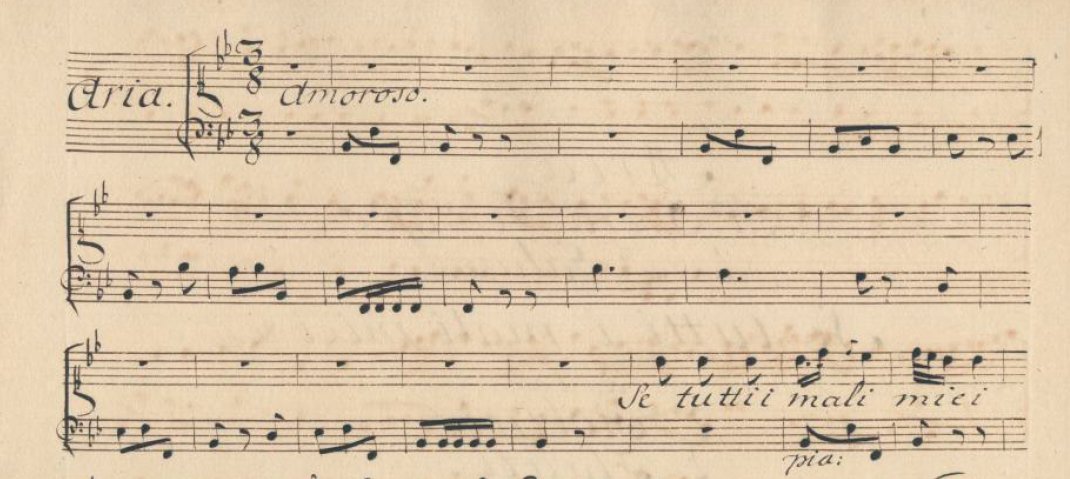"The Sources of Absolute Music" explores the age-old idea of music's ability to evoke emotions, tracing its roots from Descartes to the inception of opera, where action, words, and music blend to stir the human heart.
The Sources of Absolute Music: Mapping Emotions in Eighteenth-Century Italian Opera
The belief that ‘the end of music is to move human affections’ (Descartes, Compendium Musicae) has been a central issue in European musical thought since Plato. Opera was invented to recover the power of Ancient music to move the human heart, and its history is a permanent exploration of the capacity of action, words and music to convey emotions.
In the eighteenth century, a new type of opera consolidated with the chief concern of expressing the character’s emotions as they changed throughout the drama, inspired by Descartes’ theory of human passions. The key expressive medium was the aria col da capo, where a single, distinct passion was represented, like a concentrated pill of emotional meaning.
The ideal corpus to study this issue is the 900 operas set to music by 300 composers on the 27 dramas by Pietro Metastasio (1698-1782). It contains a comprehensive catalogue of emotions in music, a unique window of opportunity to scrutinise conventions that defined music expression and meaning for over a century, paving the way for the emergence of ‘absolute’ instrumental music, autonomous from any other art form.
DIDONE presents an innovative approach to unveil these conventions: the creation of a corpus of 4,000 digitised arias from 200 opera scores based on Metastasio’s eight most popular dramas, to be analysed using traditional methods and big data computer technology. The comparative scrutiny of dozens of different musical settings of the same librettos will reveal how composers correlate specific dramatic circumstances and emotions with distinct poetic and musical features. The results will be applicable to three main fields: (i) opera performance; (ii) analysis and interpretation of other types of music; and (iii) composition in several scenarios, from film soundtracks to creation by Artificial Intelligence.
An opera festival will be designed to recover and disseminate this hitherto ignored repertoire, which was essential to define the European musical identity.
Pietro Metastasio
Pietro Metastasio, born Pietro Antonio Domenico Trapassi (1698-1782), was an Italian poet and renowned librettist best known for his work in the genre of opera seria. He was born in Rome and initially adopted by Giovanni Vincenzo Gravina, who recognized his poetic talent. Later, he took the pseudonym Metastasio and pursued a legal education while honing his literary skills.
Metastasio’s career flourished in Vienna, where he became the court poet for the imperial theatre. He wrote numerous librettos for opera seria, collaborating with prominent composers of the time, including Johann Adolph Hasse and Giovanni Battista Pergolesi. His librettos were characterized by emotional and lyrical poetry designed to complement virtuoso vocal performances, particularly by castrati and sopranos.
While his fame continued to grow during his lifetime, the decline of castrato singing and changing musical styles led to a decrease in the popularity of Metastasio’s operas after his death. Nonetheless, his poetic contributions left a lasting impact on the operatic world, with his works being translated into multiple languages and set to music by various composers, and they continue to be studied and appreciated for their lyrical and emotional qualities.

via Wikimedia Commons





